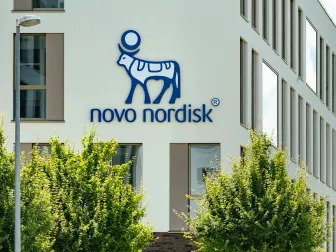January 24, 2025

This story was originally published on BioPharma Dive . To receive daily news and insights, subscribe to our free daily BioPharma Dive newsletter .
The obesity drug race is far from over, with a plethora of companies vying for a piece of what’s expected to become a huge market in the years ahead. Analysts project that “incretin” drugs, like Novo’s Wegovy and Lilly’s Zepbound, could top more than $100 billion in yearly sales by 2030.
Zepbound and Wegovy have set the bar for the competition, stimulating weight loss of about 21% and 16% in testing, respectively, and showing they can lower the risk of certain obesity-related health complications. But clinicians are hoping the drugs that come next might be more potent or address their weaknesses, such as the loss of lean muscle along with fat and the frequency of side effects that can cause people to discontinue treatment.
One way drugmakers say they could boost weight loss is by simultaneously targeting multiple metabolic hormones with a single medicine. Zepbound, which targets the hormones GLP-1 and GIP, is one example.
Novo is employing a different strategy with cagrisema and now amycretin, which both target GLP-1 and the hormone amylin. Novo reported Phase 1 data for an oral form of amycretin about a year ago. The new results involve a version of the drug delivered via an under-the-skin injection. They’re from a Phase 2 trial testing several different once-weekly doses against a placebo.
According to Novo, a 1.25 milligram weekly dose helped people lose an average of around 10% of their body weight at 20 weeks. Those who received a 5 milligram dose lost a mean of 16% after 28 weeks, while trial participants given the 20 milligram dose lost 22%, on average, at 36 weeks. Those measurements were calculated at different time points because of the study’s protocol.
Wall Street analysts were impressed with the drug’s effectiveness. David Risinger, of Leerink Partners, noted that the weight loss associated with amycretin was higher, at the same time point, than what was observed in testing of Lilly’s drug.
Cantor Fitzgerald analyst Prakhar Agrawal added that the data look “very good” and, “if trends continue
in larger trials,” could portend even more substantial weight loss.
Still, there were “three important caveats” from Novo’s press release that could temper enthusiasm, wrote William Blair’s Andy Hsieh. One is that placebo recipients gained weight, on average, in the trial, which is “rare” in larger obesity studies. Another is Novo didn’t provide safety results, only noting in its announcement that side effects were “consistent with incretin-based therapies” and typically mild to moderate in nature.
Lastly, Novo only disclosed weight-loss data for the trial volunteers who stayed on treatment, “which has the potential to inflate treatment effect in the real-world setting,” Hsieh wrote.
In response to an e-mail query from BioPharma Dive, a company spokesperson declined to say how many study volunteers stopped therapy or when the company might reveal more detailed data about those participants.
Recommended Reading